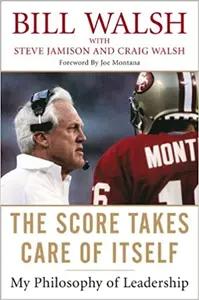Seeing Like a State: How Certain Schemes to Improve the Human Condition Have Failed
By James C. Scott
Category
PoliticsRecommended by
"Seeing Like a State" by James C. Scott is an influential work that explores the nature and consequences of state-led, top-down planning and development. With meticulously researched examples spanning centuries and continents, Scott uncovers the common traits of modern high-modernist schemes, revealing their often-destructive impact on societies.
Starting with agricultural planning, the book delves into the rationalization and simplification of landscapes to enhance production. Scott demonstrates how state intervention, spurred by visions of progress and control, leads to the implementation of standardized measures that disregard local practices and knowledge, resulting in ecological and socioeconomic upheavals.
Examining urban planning, Scott shows how grand designs impose a uniformity that neglects the organic growth and the complexities of the city. Whether in the form of monumental boulevards or rigid zoning laws, such interventions disregard the rich social networks and dynamics that emerge naturally.
Drawing on case studies spanning various domains, from forestry to taxation, Scott argues that these overly simplistic plans limit the agency of individuals, stifling decentralized decision-making and hindering adaptive responses. The book further reveals the inherent conflict between legibility and local knowledge, asserting that the state's drive for legibility and simplification often comes at the expense of diversity, resilience, and social cohesion.
In his analysis, Scott highlights the persistent belief in the transformative power of pure reason, wielded by those in authority. From utopian visions to technocratic fantasies, the book exposes the risks of this hubris-driven approach, warning against the dangers of all-encompassing plans that disregard the complexity and diversity of societies.
In "Seeing Like a State," James C. Scott provides a thought-provoking exploration of the failures and unintended consequences of state-led planning and development. With a compelling argument against high modernism's quest for legibility and control, this work stands as a cautionary tale for policymakers and citizens alike, urging us to reconsider the value of local knowledge and the importance of respecting diverse, complex systems.
Starting with agricultural planning, the book delves into the rationalization and simplification of landscapes to enhance production. Scott demonstrates how state intervention, spurred by visions of progress and control, leads to the implementation of standardized measures that disregard local practices and knowledge, resulting in ecological and socioeconomic upheavals.
Examining urban planning, Scott shows how grand designs impose a uniformity that neglects the organic growth and the complexities of the city. Whether in the form of monumental boulevards or rigid zoning laws, such interventions disregard the rich social networks and dynamics that emerge naturally.
Drawing on case studies spanning various domains, from forestry to taxation, Scott argues that these overly simplistic plans limit the agency of individuals, stifling decentralized decision-making and hindering adaptive responses. The book further reveals the inherent conflict between legibility and local knowledge, asserting that the state's drive for legibility and simplification often comes at the expense of diversity, resilience, and social cohesion.
In his analysis, Scott highlights the persistent belief in the transformative power of pure reason, wielded by those in authority. From utopian visions to technocratic fantasies, the book exposes the risks of this hubris-driven approach, warning against the dangers of all-encompassing plans that disregard the complexity and diversity of societies.
In "Seeing Like a State," James C. Scott provides a thought-provoking exploration of the failures and unintended consequences of state-led planning and development. With a compelling argument against high modernism's quest for legibility and control, this work stands as a cautionary tale for policymakers and citizens alike, urging us to reconsider the value of local knowledge and the importance of respecting diverse, complex systems.
Share This Book 📚
More Books in Politics

Permanent Record
Edward Snowden

The End of Power
Moises Naim

Expert Political Judgement
Philip E. Tetlock

More Human
Steve Hilton

Taxes Have Consequences
Art Laffer

Team of Rivals
Doris Kearns Goodwin

The Fourth Revolution
John Micklethwait

A Conflict of Visions
Thomas Sowell

A Fighting Chance
Elizabeth Warren

A Higher Loyalty
James Comey

A Practical Guide for Policy Analysis
Eugene S. Bardach

A Very Expensive Poison
Luke Harding

Accidental Presidents
Jared Cohen

All Out War
Tim Shipman

American Crusade
Pete Hegseth

Anti Americanism
Jean Francois Revel

BLITZ
David Horowitz

Battlegrounds
H.R. McMaster

Blackout
Candace Owens

Chaos
Tom O'Neill

Chasing Hillary
Amy Chozick

Civilian Warriors
Erik Prince

Dark Towers
David Enrich

Days of Rage
Bryan Burrough

Dear Leader
Jang Jin-Sung

Defend The Border and Save Lives
Tom Homan

Defender In Chief
John Yoo

Democracy
Hans-Hermann Hoppe

Devil's Bargain
Joshua Green

Devouring Freedom
W. James Antle III
Popular Books Recommended by Great Minds 📚

Foundation
Isaac Asimov

The Lean Startup
Eric Reis

Crossing the Chasm
Geoffrey Moore

The Prince
Nicolo Machiavelli

Homo Deus
Yuval Noah Harari

Give and Take
Adam Grant

The Sovereign Individual
James Dale Davidson & William Rees-Mogg

The Fountainhead
Ayn Rand

The Psychology of Money
Morgan Housel

The Innovators Dilemma
Clayton Christensen

Blitzscaling
Reid Hoffman

The Hard Thing About Hard Things
Ben Horowitz

Shoe Dog
Phil Knight

The Courage To Be Disliked
Ichiro Kishimi

The Score Takes Care of Itself
Bill Walsh

Mindset
Carol Dweck

Principles for Dealing With The Changing World Order
Ray Dalio

Who We Are and How We Got Here
David Reich

Range
David Epstein

Surely You're Joking Mr. Feynman
Richard Feynman

The Lord of the Rings
J.R.R. Tolkien

Destined For War
Graham Allison

The Holy Bible
Various

Only the Paranoid Survive
Andy Grove

Creativity, Inc.
Ed Catmull

Against The Gods
Peter Bernstein

Snow Crash
Neal Stephenson

The Great CEO Within
Matt Mochary

Good To Great
Jim Collins

American Kingpin
Nick Bilton
